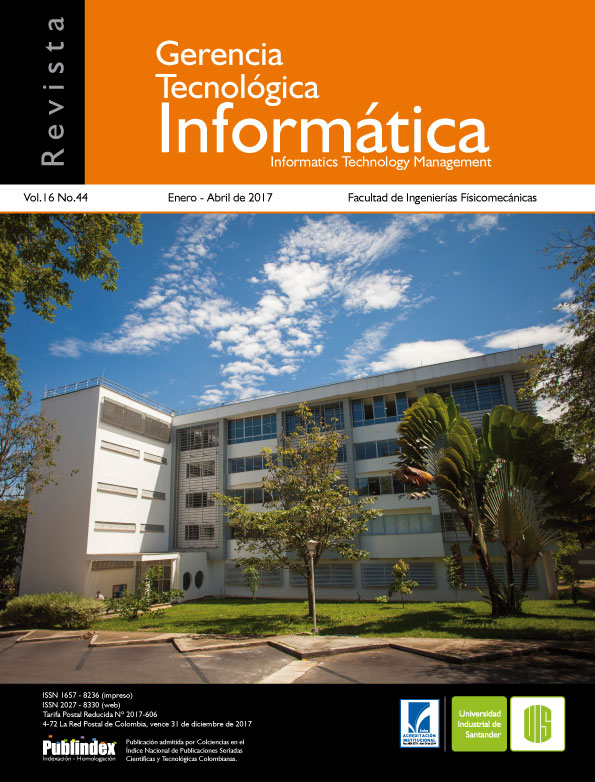Published 2018-03-09
Keywords
- Low frequency,
- magnetic induction,
- hearing loss
How to Cite
Abstract
In the present work the design, implementation and analysis of a hearing aid system whose energy for operation is obtained from the field generated by a magnetic loop installed in a private room is detailed. Different circuit dispositions are presented and a methodology is provided for the design that maximizes the audio signal received in this type of devices. For the determination of the number of turns, a mathematical circuit model is presented and its correlation with experimental data obtained on a prototype under test is presented and its correlation with experimental data obtained on a prototype under test is presented. The power transfer ratio between systems across the field was calculated.
Downloads
References
[2] José Manuel Gallardo. Dispositivo electrónico de ayuda para personas hipoacúsicas. Proyecciones, Vol 9. Nº2. página 67. Octubre 2011.
[3] Nikola Tesla. System of transmission of electrical energy. March 20 1900. US Patent 645,576.
[4] Hongliang Joe Liang. Wireless energy transfer through strongly coupled resonances. 2013.
[5] Jagadis Chunder Bose. Detector for electrical disturbances., March 29 1904. US Patent 755,840.
[6] Simon Ramo, John R Whinnery, Theodore Van Duzer. Campos y ondas: aplicación a las comunicaciones electrónicas. Pirámide, 1974.
[7] Youbok Lee. Rfid coil design. Microchip Technol. Inc. Appl. Note, 1998.
[8] FFA Van der Pijl. Inductive and Wireless Energy Transfer in Residential Applications. PhD thesis, TU Delft, Delft University of Technology, 2012.
[9] Like Gao, Wenshan Hu, Xiongwei Xie, Qijun Deng, Zhiding Wu, Hong Zhou, and Yan Jiang. Optimum design of coil for wireless energy transmission system based on resonant coupling. In 2013 10th IEEE International Conference on Control and Automation (ICCA), pages 190–195. IEEE, 2013.
[10] Ryan Sasur. Wireless energy transfer. 2011.
[11] Manuel Pinuela, David C Yates, Stepan Lucyszyn, and Paul D Mitcheson. Maximizing dc to load efficiency for inductive power transfer. IEEE transactions on power electronics, 28(5):2437–2447, 2013.
[12] Brent Griffin and Carrick Detweiler. Resonant wireless power transfer to ground sensors from a uav. In Robotics and Automation (ICRA), 2012 IEEE International Conference on, pages 2660–2665. IEEE, 2012.
[13] Aristeidis Karalis, John D Joannopoulos, Marin Soljacic. Efficient wireless non-radiative midrange energy transfer. Annals of Physics, 323(1):34–48, 2008.
[14] Rudolf Mecke, Christian Rathge, Wolfgang Fischer, and Bojan Andonovski. Analysis of inductive energy transmission systems with large air gap at high frequencies. In European Conference on Power Electronics and Applications, Toulouse, 2003.
[15] Julian Vrbancich. Magnetic field distribution and design of helmholtz coils. Technical report, DTIC Document, 1991.
[16] Frederick E. Terman, Electronic and Radio Engineering. McGraw-Hill Inc.,US; 4th edition (December 1955).
